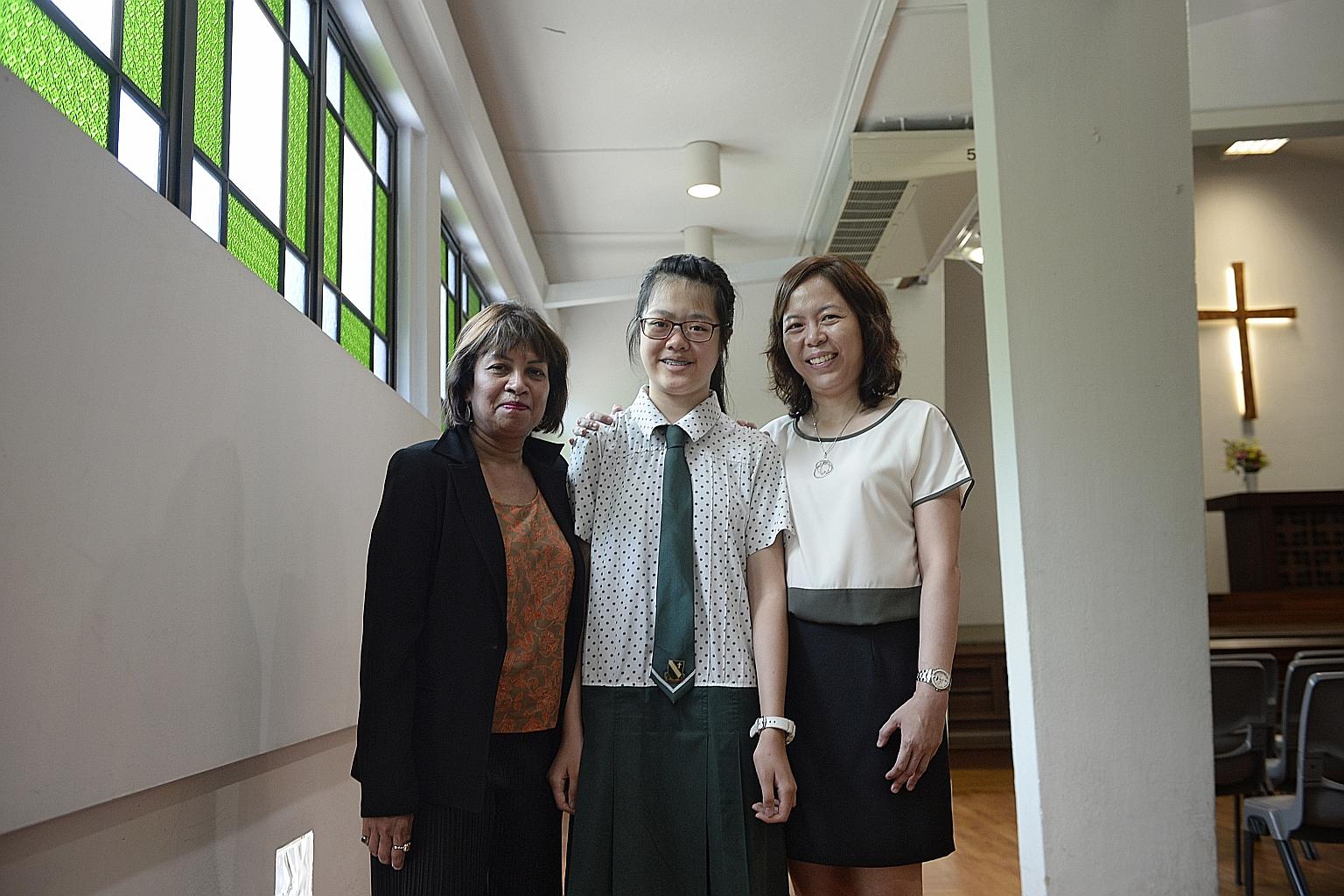Writing difficulties no barrier to scoring good grades
Sec 4 student gets seven distinctions despite disease that affects how fast she can write
Sign up now: Get ST's newsletters delivered to your inbox

Janessa Yu with her English teacher Shamini Rajandran and Chinese teacher Florence Chang at St Margaret's Secondary School yesterday. Janessa has Charcot-Marie-Tooth disease, which causes a gradual loss of muscle tissue and sense of touch.
ST PHOTO: MARK CHEONG
Like most students taking the O-level examinations, Janessa Yu was worried that she could not finish her papers in time.
This was not because she was not prepared, but rather that she has a rare disease which affects her mobility and how fast she can write.
Janessa, 16, a Secondary 4 student at St Margaret's Secondary School, was diagnosed with Charcot-Marie-Tooth disease when she was five.
The disease meant that she required more time than other students to complete her papers.
When Janessa took the O levels last year, she was given an extra 15 minutes for every hour of an exam.
Yesterday, she collected her O-level results and was thrilled to find out she had scored seven distinctions out of eight subjects.
"I'm grateful for the school's understanding and help through the journey," she said.
Mrs Shamini Rajandran, Janessa's English teacher, said: "She was given extra time only during exams. For class work, no. She managed fine.
"She produced some really good pieces of work which I photocopied, placed on the visualiser and used as models for the class."
Janessa hopes to go to a junior college next, but said she has "no concrete plans yet".
Janessa's mother, Mrs Lillian Yu, 56, a personal assistant at Swiss bank UBS, said her daughter is a "constant worker".
"She requested not to have any tuition, as she would not have time to finish her school work and study on her own. She prefers to self-study."
Mrs Yu first discovered that Janessa had symptoms of CharcotMarie-Tooth disease when she did not meet the typical stages of a child's development.
"As a baby, when she sits, she would tip over," said Mrs Yu, who has an older daughter.
The disease causes a gradual loss of muscle tissue and sense of touch, mainly in the feet and legs, and later affects the hands and arms.
When Mrs Yu first consulted doctors here about 10 years ago, they thought Janessa had cerebral palsy.
"Singapore, being a small population, we don't see a lot of such cases. Doctors told us they've seen only two such cases," she added.
But Mrs Yu said Janessa leads a normal life. "She can walk, but slowly. She needs support like holding on to railings."
Janessa undergoes physiotherapy and occupational therapy once a month to strengthen her muscles and nerves to help in writing.
"One thing that struck me about Janessa is that she never wanted to be treated differently," said Mrs Rajandran.
"I used to make sure she had a chair during assembly. But I noticed she didn't want to be fussed over. She wanted to be just like any other student."


